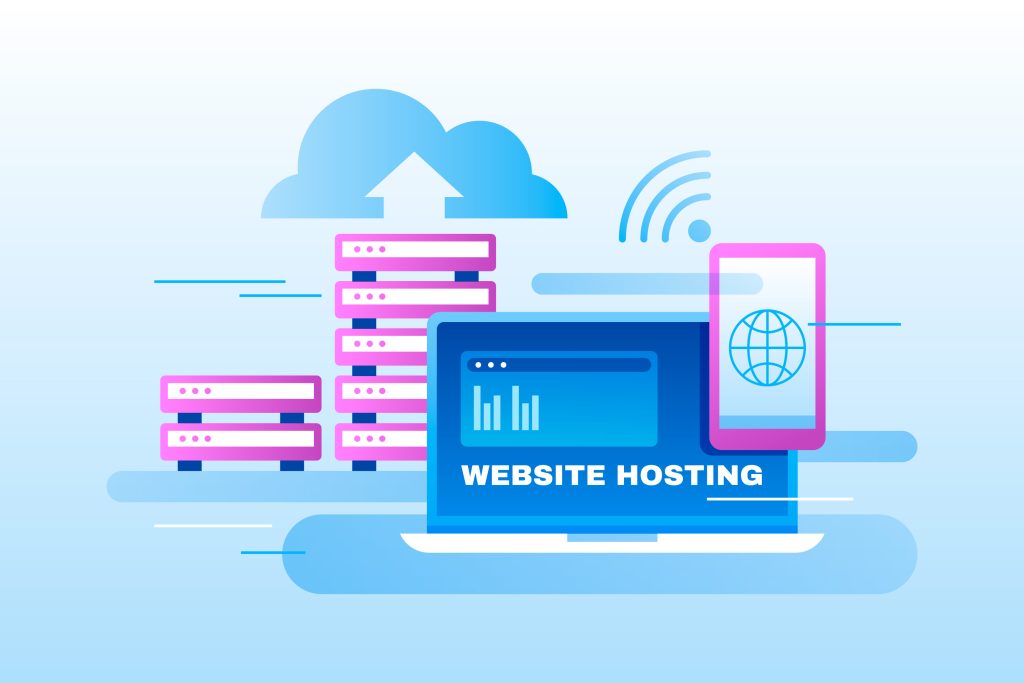Introduction:
In the expansive and ever-evolving realm of web development, selecting the appropriate web hosting provider is comparable to establishing a robust groundwork for your digital masterpiece. Developers, often the architects behind the virtual realms we navigate daily, require a hosting environment that goes beyond mere storage and bandwidth. In this blog post, we’ll explore the must-have tools and features that can elevate your web hosting experience, empowering developers to craft seamless, efficient, and secure online experiences.

Scalability and Performance Optimization
Today’s digital ecosystems demand scalability. Web hosting providers that can seamlessly scale resources based on traffic spikes ensures that your applications perform optimally even during peak times. Look for features like auto-scaling, Content Delivery Networks (CDNs), and solid-state drives (SSDs) to guarantee lightning-fast loading times.
Developer-Friendly Control Panel
A user-friendly control panel is the cockpit of your hosting experience. Developers appreciate intuitive interfaces that enable easy management of domains, databases, and server settings. Features like one-click installations, Git integration, and a robust file manager streamline the development and deployment processes.
Multiple Programming Language Support
A diverse toolkit is essential for developers, and the hosting environment should accommodate various programming languages. Ensure that your hosting provider supports PHP, Python, Ruby, Node.js, and other languages relevant to your project. This flexibility allows you to choose the right technology stack for your application.
Version Control Integration
Version control is the backbone of collaborative development. Hosting providers that effortlessly integrate with widely used version control systems such as Git empower developers to monitor modifications, collaborate with efficiency, and revert to prior versions when necessary. This feature is indispensable for agile development workflows. Web Hosting.
Automated Backups and Disaster Recovery
The best-laid plans sometimes encounter unforeseen challenges. Robust hosting solutions offer automated backup mechanisms and disaster recovery options. Regular backups safeguard your data, allowing you to restore your website to a stable state in case of unexpected issues.
Security Features
Security is non-negotiable in today’s digital landscape. Make certain that your hosting provider provides capabilities such as SSL certificates, DDoS protection, firewalls, and malware scanning. Additionally, a hosting environment with regular security updates helps shield your applications from evolving threats. Web Hosting.
Development Staging Environments
Testing plays a pivotal role in web development. Opting for a hosting provider that facilitates development staging environments enables you to assess modifications before implementing them on the live site. This lessens the chance of introducing mistakes or problems that could have an impact on the user experience.
24/7 Technical Support
Development doesn’t adhere to a 9-to-5 schedule, and neither should your support system. Select a hosting provider that provides round-the-clock technical support. Rapid response times and knowledgeable support staff can be a lifesaver when facing unexpected challenges. Web Hosting.
Continuous Integration/Continuous Deployment (CI/CD) Support
In the fast-paced world of web development, the ability to automate the testing and deployment processes is a game-changer. Look for a hosting provider that supports CI/CD pipelines, allowing you to automate tasks like testing, building, and deploying code changes. This enhances development speed, reduces errors, and ensures a smoother workflow.
Resource Monitoring and Analytics
Developers need insights into their applications’ performance. Hosting providers that offer robust monitoring and analytics tools enable you to track resource usage, identify bottlenecks, and optimize your applications for better efficiency. Real-time data helps you make informed decisions to enhance user experiences.
Server-Side Scripting Support
For dynamic and interactive web applications, server-side scripting is crucial. Ensure your hosting provider supports server-side scripting languages like PHP, Python, or Ruby, allowing you to execute code on the server and deliver dynamic content to users.
Customization and Configuration Options
Every project is unique, and your hosting environment should reflect that. Explore hosting providers that present customization choices, enabling you to tailor server settings to align with the unique requirements of your project. This flexibility is especially valuable for experienced developers who want fine-grained control over their hosting environment. Web Hosting.
Cost Transparency and Predictability
While features and tools are essential, it’s also crucial to understand the cost structure of your hosting provider. Look for transparent pricing models that clearly outline the costs associated with various features and resource usage. Predictable costs help you manage your budget effectively as your project scales.
High Uptime Guarantee
Unscheduled downtime can be harmful to your online presence. Opting for a hosting provider with a robust uptime guarantee ensures continuous accessibility of your website or application to users. Seek out providers that promise a minimum of 99.9% uptime to reduce interruptions and enhance the availability of your services. Web Hosting.
Environmental Responsibility
As sustainability takes center stage in diverse industries, hosting providers are progressively embracing eco-friendly practices. Consider choosing a hosting provider that demonstrates a commitment to environmental responsibility through energy-efficient data centers or renewable energy sources.
Community and Documentation
A supportive community and comprehensive documentation can be invaluable resources for developers. Choose a hosting provider that fosters a vibrant community where developers can exchange ideas, seek advice, and share solutions. Additionally, well-documented features and APIs contribute to a smoother development experience, allowing you to leverage the full potential of the hosting environment.
Global Data Center Presence: The location of data centers can impact the speed and accessibility of your website or application. Hosting providers with a global presence, strategically located data centers, and the option to choose server locations allow you to optimize the user experience for a diverse audience. Web Hosting.
Compliance and Regulation Adherence
Depending on your industry or target audience, adhering to specific regulations and compliance standards may be necessary. Choose a hosting provider that understands and complies with relevant regulations, ensuring that your applications meet legal requirements and security standards.
Transparent Service Level Agreements (SLAs)
Service Level Agreements define the terms of service between you and your hosting provider. Transparent SLAs that clearly outline performance expectations, response times, and support guarantees help establish a mutual understanding. Thoroughly review these agreements to ensure they align with your project’s requirements. Web Hosting.
Future-Proofing and Upgradability
The digital landscape evolves rapidly, and your hosting environment should be equipped to adapt. Choose a provider that invests in technology upgrades and stays abreast of industry trends. This future-proofing ensures that your applications remain compatible and performant as technology advances.
DevOps Integration
DevOps practices streamline collaboration between development and operations teams, enhancing the efficiency of software development and deployment.
Hosting providers that seamlessly integrate with DevOps tools and methodologies empower developers to automate workflows, enhance collaboration, and expedite the delivery of high-quality software.
Transparent Resource Allocation
Understanding how resources are allocated and shared on the hosting server is crucial. Look for providers that offer transparent resource allocation, whether through dedicated resources or clear specifications on shared hosting plans. This transparency ensures that your applications receive the necessary resources for optimal performance.
Web Hosting
Mobile Optimization
Considering the escalating prevalence of mobile devices, it is crucial to optimize your web applications for compatibility with mobile platforms. Choose a hosting provider that supports mobile optimization features, such as responsive design, mobile-friendly testing tools, and support for mobile app hosting.
Conclusion
In the dynamic world of web development, the search for the perfect hosting provider involves careful consideration of numerous factors. By focusing on a holistic set of features that span performance, security, scalability, and support, developers can lay the groundwork for successful and sustainable digital projects.



